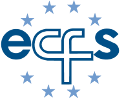Young Investigator Awards 2024
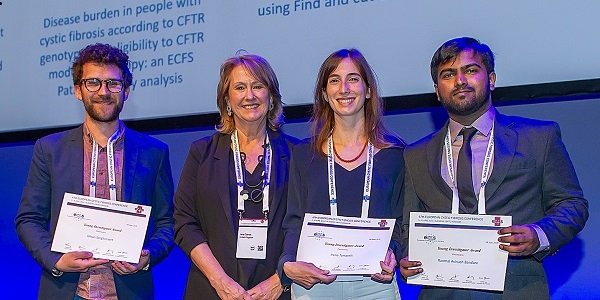
Gerd Döring Award 2024
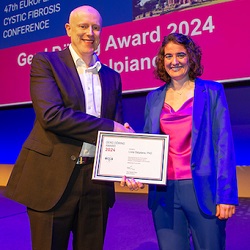
Gerd Döring Award 2024
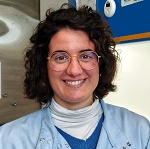
Livia Delpiano
Biography
Livia Delpiano has long been fascinated by the respiratory system since her Master's research on silicosis at the University of Genoa. Later, her interest deepened while studying lung pathology and the properties of airway mucus in CF at Giannina Gaslini Hospital. Her PhD at Newcastle University furthered her understanding of CF airway pathophysiology, focusing on exploring alternative ion channels to restore salt/fluid secretion for CF patients who are ineligible for current therapies. Now, as a postdoc at the University of Cambridge, Livia continues exploring this field.
In her paper, “Dynamic regulation of airway surface liquid pH by TMEM16A and SLC26A4 in cystic fibrosis nasal epithelia with rare mutations”, Livia explored strategies to address pH imbalances in CF airways through alternative channels and transporters. She studied the roles of TMEM16A and SLC26A4 in ion transport and airway surface liquid (ASL) pH regulation, particularly in the absence of functional CFTR, under normal and inflammatory conditions. She identified conditions where these proteins were most effective, offering potential substitutes for CFTR dysfunction and restoring ASL pH to physiological levels. Additionally, Livia identified two FDA-approved drugs that activate one of these proteins, effectively restoring ASL pH. This research offers promising insights into ASL pH-directed therapy, irrespective of CF mutation, highlighting its potential to enhance mucociliary clearance. Moreover, it emphasises the importance of personalised medicine in identifying optimal treatments for rare CF mutations.
Young Investigator Award 2024
Following the recommendations of the Steering Committee during the abstracts review process, the ECFS wishes to commend the quality of the work presented in the abstracts of some young investigators under the age of 35 having applied for the award.
The Young Investigator Award includes a monetary grant of € 750, a free registration to the Conference, and a 2024 ECFS membership subscription. We wish to extend our congratulations to the following Young Investigators:

Ranmal Avinash Bandara
Biography
My name is Ranmal Avinash Bandara. I attended the University of Toronto for my undergraduate studies where I specialized in immunology. I then started my master’s degree in laboratory medicine and pathobiology at the University of Toronto in Professor Jim Hu’s lab where I then reclassified to the PhD programme in my second year. I am currently a fourth year PhD student working at the Hospital for Sick Children in Toronto supervised by professors Jim Hu and Amy Wong.
About the research presented at the 47th European CF Conference, abstract number WS05.06:
Integration of the LacZ and CFTR transgene using Find and cut-and-transfer (FiCAT)
The research I am currently focusing on is the Find and cut-and- transfer (FiCAT) system. The system uses the Cas9 protein to create a double stranded break followed by transposition of a transposon by the piggybac transposase linked to cas9. I have created a 22 kilobase pair plasmid containing all the components of FiCAT including the CFTR or LacZ genes inserted into the transposon. This allows us to integrate the LacZ and CFTR gene at CRISPR/Cas9 cut sites. I have shown using this system that both the lacZ or CFTR transgenes can be integrated at the AAVS1 or GGTA1 loci. Furthermore, I have shown an increase in LacZ expression due to successful integration when targeting the AAVS1 locus detected by chemiluminescence and confirmed by X-gal staining.

Johan Sergheraert
Biography
I am a dental surgeon in Reims University Hospital and more particularly specialized in periodontology. After 5 years as a dental student in Nice University, I moved to Reims to complete an internship. At the same time, I completed a PhD thesis in Biomatériaux et Inflammation en site osseux (BIOS) Laboratory (Reims) and joined the cystic fibrosis-related bone disease (CFBD) research program since 2019. After 4 years of work and a pandemic, I defended my PhD thesis in December 2023.
About the research presented at the 47th European CF Conference, abstract number WS14.01:
Elexacaftor/Tezacaftor/Ivacaftor treatment partially normalizes osteoclasts’ bone resorption activity in cystic fibrosis-related bone disease
I have worked on cystic fibrosis-related bone disease for many years in the CFBD research programme of Bios Laboratory. The presented work focuses on the impact of CFTR Class II mutations on osteoclasts phenotype and the effects of CFTR modulators. We have shown a defect in osteoclast differentiation process associated with an increased S1P secretion and a defect in their resorption activity. Interestingly, we demonstrated that Elexacaftor/Tezacaftor/Ivacaftor treatment partially restored the osteoclastic phenotype by normalizing the levels of S1P secretion and increasing osteoclasts’ resorption activity. However, Elexacaftor/Tezacaftor/Ivacaftor treatment did not allow the number of multinucleated cells or the resorption capacity to be back to control levels.
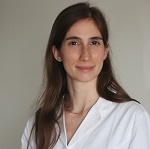
Irene Tomarelli
Biography
I am a twenty-seven-year-old Italian resident in Pulmonology at Università Degli Studi in Milan, Italy. During the first three years of residency, I have been working with patients with both acute and chronic respiratory infections, including people with cystic fibrosis and bronchiectasis.
About the research presented at the 47th European CF Conference, abstract number WS02.03:
Disease burden in people with cystic fibrosis according to CFTR genotype and eligibility to CFTR modulator therapy: an ECFS Patient Registry analysis
We performed a transversal-observational study that aims to assess the clinical burden of people with cystic fibrosis not eligible to elezacafor/tezacaftor/ivacaftor (ETI) therapy. The analysis was based on 2019 ECFS-Patient Registry; 48,732 patients were included and divided in five groups according to their genotype: F508del (≥1 F508del variant), FDA-approved (no F508del, ≥1 FDA-approved variant), Compassionate group (no F508del or FDA-approved variants, ≥1 variant responding to ETI), non-protein group (no CFTR protein) and other variants. Our analysis highlighted heterogeneity among CF patients not eligible for ETI: FDA-approved variants showed a lower clinical burden than Compassionate group, which on the other side presented a disease burden comparable to traditional genotypes. This study suggests that any potential expansion of ETI indications should consider not only the presence of a demonstrated in-vitro response, but also the disease burden associated with genotypes and possible future clinical implications. The Compassionate variants merit careful consideration in this regard.
